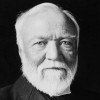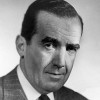Assist the afflicted with something real, if thou canst: As for Tears they are but Water, what good can they do?
Thomas Fuller (1654-1734) English physician, preacher, aphorist, writer
Introductio ad Prudentiam, Vol. 2, # 2023 (1727)
(Source)
Quotations about:
needy
Note not all quotations have been tagged, so Search may find additional quotes on this topic.
Who are the greedy? Those who are not satisfied with what suffices for their own needs. Who are the robbers? Those who take for themselves what rightfully belongs to everyone. And you, are you not greedy? Are you not a robber? The things you received in trust as a stewardship, have you not appropriated them for yourself? Is not the person who strips another of clothing called a thief? And those who do not clothe the naked when they have the power to do so, should they not be called the same? The bread you are holding back is for the hungry, the clothes you keep put away are for the naked, the shoes that are rotting away with disuse are for those who have none, the silver you keep buried in the earth is for the needy. You are thus guilty of injustice toward as many as you might have aided, and did not.
Basil of Caesarea (AD 330-378) Christian bishop, theologian, monasticist, Doctor of the Church [Saint Basil the Great, Ἅγιος Βασίλειος ὁ Μέγας]
“I Will Tear Down My Barns [καθελῶ μου τὰς ἀποθήκας],” Sermon # 6 [tr. Schroeder (2009)]
(Source)
We know that the poor are distressed by their many wants, and that nobody relieves them; but if the rich feel resentment, it is at lacking any single thing, or meeting with resistance from a single person.
[On sait que les pauvres sont chagrins de ce que tout leur manque, et que personne ne les soulage; mais s’il est vrai que les riches soient colères, c’est de ce que la moindre chose puisse leur manquer, ou que quelqu’un veuille leur résister.]
Jean de La Bruyère (1645-1696) French essayist, moralist
The Characters [Les Caractères], ch. 6 “Of Gifts of Fortune [Des Biens de Fortune],” § 48 (6.48) (1688) [tr. Stewart (1970)]
(Source)
(Source (French)). Alternate translations:The Poor are troubled that they want all things, and no body comforts them. The Rich are angry that they can want the least thing, or that any one would resist them.
[Bullord ed. (1696)]The Poor are troubled that they want every thing, and no body comforts them. The Rich are angry that they should want the least thing, or that any one should oppose them.
[Curll ed. (1713)]The Grief of the Poor is, that they want all Things, and no body comforts them. The Rich are angry if they want the least Thing, is any one contradict or oppose them.
[Browne ed. (1752)]It is well known that the poor are sad because they want everything and nobody comforts them; but if it be true that the rich are irascible, it is because they may want the smallest thing, or that some one might oppose them.
[tr. Van Laun (1885)]
“But whom do I treat unjustly,” you say, “by keeping what is my own?” Tell me, what is your own? What did you bring into this life? From where did you receive it? It is as if someone were to take the first seat in the theater, then bar everyone else from attending, so that one person alone enjoys what is offered for the benefit of all in common — this is what the rich do. They seize common goods before others have the opportunity, then claim them as their own by right of preemption. For if we all took only what was necessary to satisfy our own needs, giving the rest to those who lack, no one would be rich, no one would be poor, and no one would be in need.
[Καὶ ποῖον, λέγει, ἀδικῶ, μὲ τὸ νὰ κρατῶ γιὰ τoν ἐαυτόν μου αὐτὰ ποῦ μου ἀνήκουν; Ποία, εἰπέ μου, εἶναι αὐτὰ ποῦ σου ἀνήκουν; Ἀπὸ ποῦ τὰ ἔλαβες, καὶ τὰ ἔφερες στὴν ζωὴν αὐτήν; Ὅπως ἀκριβῶς κάποιος ποὺ εὑρίσκει στὸ θέατρο θέση μὲ καλὴν θέαν, ἐμποδίζει ἔπειτα τοὺς εἰσερχομένους, θεωρώντας ὡς ἰδικὸ τοῦ αὐτὸ ποὺ προορίζεται γιὰ χρῆσιν κοινήν, ἔτσι εἶναι καὶ οἱ πλούσιοι. Ἀφοῦ ἐκυρίευσαν ἐκ τῶν προτέρων τα κοινὰ ἀγαθά, τὰ ἰδιοποιοῦνται ἁπλῶς ἐπειδὴ τὰ ἐπρόλαβαν. Ἐὰν ὁ καθένας ἐκρατοῦσε ἐκεῖνο ποὺ ἀρκεῖ γιὰ τὴν ἱκανοποίηση τῶν ἀναγκῶν του, καὶ ἄφηνε τὸ περίσσευμα σ’ αὐτὸν ποὺ τὸ χρειάζεται, κανεὶς δὲν θὰ ἦταν πλούσιος, ἀλλὰ καὶ κανεὶς πτωχός.]
Basil of Caesarea (AD 330-378) Christian bishop, theologian, monasticist, Doctor of the Church [Saint Basil the Great, Ἅγιος Βασίλειος ὁ Μέγας]
“I Will Tear Down My Barns [καθελῶ μου τὰς ἀποθήκας],” Sermon # 6 [tr. Schroeder (2009)]
(Source)
In C. Paul Schroeder, ed., Saint Basil on Social Justice (2009).
If a man who was rich enough in this world’s goods saw that one of his brothers was in need, but closed his heart to him, how could the love of God be living in him? My children, our love is not to be just words or mere talk, but something real and active.
[ὃς δ’ ἂν ἔχῃ τὸν βίον τοῦ κόσμου καὶ θεωρῇ τὸν ἀδελφὸν αὐτοῦ χρείαν ἔχοντα καὶ κλείσῃ τὰ σπλάγχνα αὐτοῦ ἀπ’ αὐτοῦ πῶς ἡ ἀγάπη τοῦ Θεοῦ μένει ἐν αὐτῷ. Τεκνία μὴ ἀγαπῶμεν λόγῳ μηδὲ τῇ γλώσσῃ ἀλλὰ ἐν ἔργῳ καὶ ἀληθείᾳ.]
The Bible (The New Testament) (AD 1st - 2nd C) Christian sacred scripture
1 John 3:17-18 [JB (1966)]
(Source)
(Source (Greek)). Alternate translations:But whoso hath this world's good, and seeth his brother have need, and shutteth up his bowels of compassion from him, how dwelleth the love of God in him?
My little children, let us not love in word, neither in tongue; but in deed and in truth.
[KJV (1611)]If we are rich and see others in need, yet close our hearts against them, how can we claim that we love God? My children, our love should not be just words and talk; it must be true love, which shows itself in action.
[GNT (1976)]If anyone is well-off in worldly possessions and sees his brother in need but closes his heart to him, how can the love of God be remaining in him? Children, our love must be not just words or mere talk, but something active and genuine.
[NJB (1985)]But if someone has material possessions and sees a brother or sister in need but refuses to help—how can the love of God dwell in a person like that?
Little children, let’s not love with words or speech but with action and truth.
[CEB (2011)]If anyone has material possessions and sees a brother or sister in need but has no pity on them, how can the love of God be in that person? Dear children, let us not love with words or speech but with actions and in truth.
[NIV (2011)]How does God’s love abide in anyone who has the world’s goods and sees a brother or sister in need and yet refuses help?
Little children, let us love, not in word or speech, but in truth and action.
[NRSV (2021 ed.)]
Anxiety is love’s greatest killer. It creates the failures. It makes others feel as you might when a drowning man holds on to you. You want to save him, but you know he will strangle you with his panic.
He who withholds but a pennyworth of worldly goods from his neighbor, knowing him to be in need of it, is a robber in the sight of God.
Meister Eckhart (c. 1260-1328?) German theologian, philosopher, mystic [a.k.a. Johannes Eckhart von Hochheim; Eckhart; Eckehart]
Meister Eckhart, Tractate 6, “Sister Katrei” [ed. Pfeiffer (1857), tr. Evans]
(Source)
A man’s first duty is to make a competence and be independent. But his whole duty does not end there. It his his duty to do something for his needy neighbors who are less favored than himself. It is his duty to contribute to the general good of the community in which he lives. He has been protected by its laws. Because he has been protected in his various enterprises he has been able to make money sufficient for his needs and those of his family. All beyond this belongs in justice to the protecting power that has fostered him and enabled him to win pecuniary success. To try and make the world in some way better than you have found is to have a noble motive in life.
The millions who are in want will not stand by silently forever while the things to satisfy their needs are within easy reach.
Franklin Delano Roosevelt (1882-1945) American lawyer, politician, statesman, US President (1933-1945)
Speech (1932-05-22), Commencement, Oglethorpe University, Atlanta, Georgia
(Source)
What good is it, my brothers and sisters, if someone claims to have faith but does not have works? Surely that faith cannot save, can it? If a brother or sister is naked and lacks daily food and one of you says to them, “Go in peace; keep warm and eat your fill,” and yet you do not supply their bodily needs, what is the good of that? So faith by itself, if it has no works, is dead.
But someone will say, “You have faith, and I have works.” Show me your faith apart from works, and I by my works will show you faith.[Τί τὸ ὄφελος ἀδελφοί μου ἐὰν πίστιν λέγῃ τις ἔχειν ἔργα δὲ μὴ ἔχῃ μὴ δύναται ἡ πίστις σῶσαι αὐτόν. ἐὰν ἀδελφὸς ἢ ἀδελφὴ γυμνοὶ ὑπάρχωσιν καὶ λειπόμενοι τῆς ἐφημέρου τροφῆς. εἴπῃ δέ τις αὐτοῖς ἐξ ὑμῶν Ὑπάγετε ἐν εἰρήνῃ θερμαίνεσθε καὶ χορτάζεσθε μὴ δῶτε δὲ αὐτοῖς τὰ ἐπιτήδεια τοῦ σώματος τί τὸ ὄφελος. οὕτως καὶ ἡ πίστις ἐὰν μὴ ἔχῃ ἔργα νεκρά ἐστιν καθ’ ἑαυτήν.
Ἀλλ’ ἐρεῖ τις Σὺ πίστιν ἔχεις κἀγὼ ἔργα ἔχω δεῖξόν μοι τὴν πίστιν σου χωρὶς τῶν ἔργων κἀγώ σοι δείξω ἐκ τῶν ἔργων μου τὴν πίστιν.]The Bible (The New Testament) (AD 1st - 2nd C) Christian sacred scripture
James 2:14-18 [NRSV (2021 ed.)]
(Source)
(Source (Greek)). Alternate translations:What doth it profit, my brethren, though a man say he hath faith, and have not works? Can faith save him? If a brother or sister be naked, and destitute of daily food, and one of you say unto them, Depart in peace, be ye warmed and filled; notwithstanding ye give them not those things which are needful to the body; what doth it profit? Even so faith, if it hath not works, is dead, being alone. Yea, a man may say, Thou hast faith, and I have works: shew me thy faith without thy works, and I will shew thee my faith by my works.
[KJV (1611)]Take the case, my brothers, of someone who has never done a single good act but claims that he has faith. Will that faith save him? If one of the brothers or one of the sisters is in need of clothes and has not enough food to live on, and one of you says to them, 'I wish you well; keep yourself warm and eat plenty', without giving them these bare necessities of life, then what good is that? Faith is like that: if good works do not go with it, it is quite dead. This is the way to talk to people of that kind: 'You say you have faith and I have good deeds; I will prove to you that I have faith by showing you my good deeds -- now you prove to me that you have faith without any good deeds to show.'
[JB (1966)]My friends, what good is it for one of you to say that you have faith if your actions do not prove it? Can that faith save you? Suppose there are brothers or sisters who need clothes and don't have enough to eat. What good is there in your saying to them, “God bless you! Keep warm and eat well!”—if you don't give them the necessities of life? So it is with faith: if it is alone and includes no actions, then it is dead.
But someone will say, “One person has faith, another has actions.” My answer is, “Show me how anyone can have faith without actions. I will show you my faith by my actions.”
[GNT (1976)]How does it help, my brothers, when someone who has never done a single good act claims to have faith? Will that faith bring salvation? If one of the brothers or one of the sisters is in need of clothes and has not enough food to live on, and one of you says to them, 'I wish you well; keep yourself warm and eat plenty,' without giving them these bare necessities of life, then what good is that? In the same way faith, if good deeds do not go with it, is quite dead. But someone may say: So you have faith and I have good deeds? Show me this faith of yours without deeds, then! It is by my deeds that I will show you my faith.
[NJB (1985)]My brothers and sisters, what good is it if people say they have faith but do nothing to show it? Claiming to have faith can’t save anyone, can it? Imagine a brother or sister who is naked and never has enough food to eat. What if one of you said, “Go in peace! Stay warm! Have a nice meal!”? What good is it if you don’t actually give them what their body needs? In the same way, faith is dead when it doesn’t result in faithful activity. Someone might claim, “You have faith and I have action.” But how can I see your faith apart from your actions? Instead, I’ll show you my faith by putting it into practice in faithful action.
[CEB (2011)]












